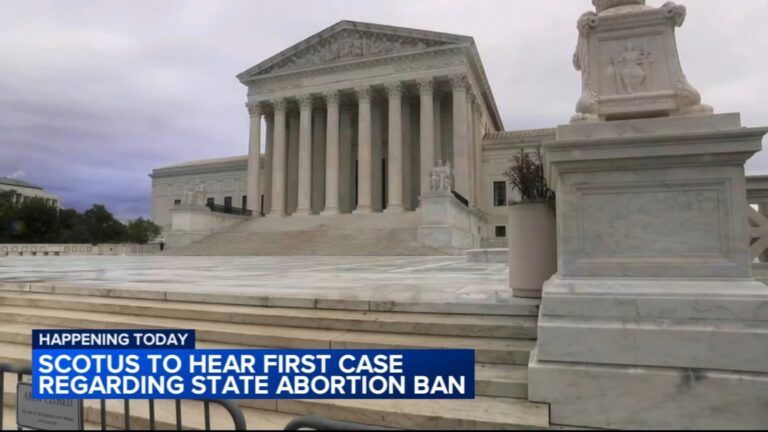WASHINGTON — The Supreme Court will consider Wednesday when doctors can provide abortions during medical emergencies in states with bans enacted after the high court’s sweeping decision overturning Roe v. Wade.
The case comes from Idaho, which is one of 14 states that now ban abortion at all stages of pregnancy with limited exceptions. It marks the first time the Supreme Court has considered a state ban since Roe was reversed.
The Biden administration argues that even in states where abortion is banned, federal health care law says hospitals must be allowed to terminate pregnancies in rare emergencies where a patient’s life or health is at serious risk.
Idaho contends its ban has exceptions for life-saving abortions but allowing it in more medical emergencies would turn hospitals into “abortion enclaves.” The state argues the administration is misusing a health care law that is meant to ensure patients aren’t turned away based on their ability to pay.
Takeaways from Supreme Court arguments over the abortion drug mifepristone
The Supreme Court has allowed the Idaho law to go into effect, even during emergencies, as the case played out.
Doctors have said Idaho’s abortion ban has already affected emergency care. More women whose conditions are typically treated with abortions must now be flown out of state for care, since doctors must wait until they are close to death to provide abortions within the bounds of state law.
Meanwhile, complaints of pregnant women being turned away from U.S. emergency rooms spiked after the Supreme Court overturned Roe v. Wade, according to federal documents obtained by The Associated Press.
Anti-abortion groups blame doctors for mishandling maternal emergency cases. Idaho argues the Biden administration overstates health care woes to undermine state abortion laws.
The justices also heard another abortion case this term seeking to restrict access to abortion medication. It remains pending, though the justices overall seemed skeptical of the push.
Supreme Court seems concerned about whether abortion opponents have a right to sue over medication
The Justice Department originally brought the case against Idaho, arguing the state’s abortion law conflicts with the 1986 Emergency Medical Treatment and Active Labor Act, known as EMTALA. It requires hospitals that accept Medicare to provide emergency care to any patient regardless of their ability to pay. Nearly all hospitals accept Medicare.
A federal judge initially sided with the administration and ruled that abortions were legal in medical emergencies. After the state appealed, the Supreme Court allowed the law to go fully into effect in January.
The Supreme Court is expected to rule by the end of June.
Copyright © 2024 by The Associated Press. All Rights Reserved.
(source)


